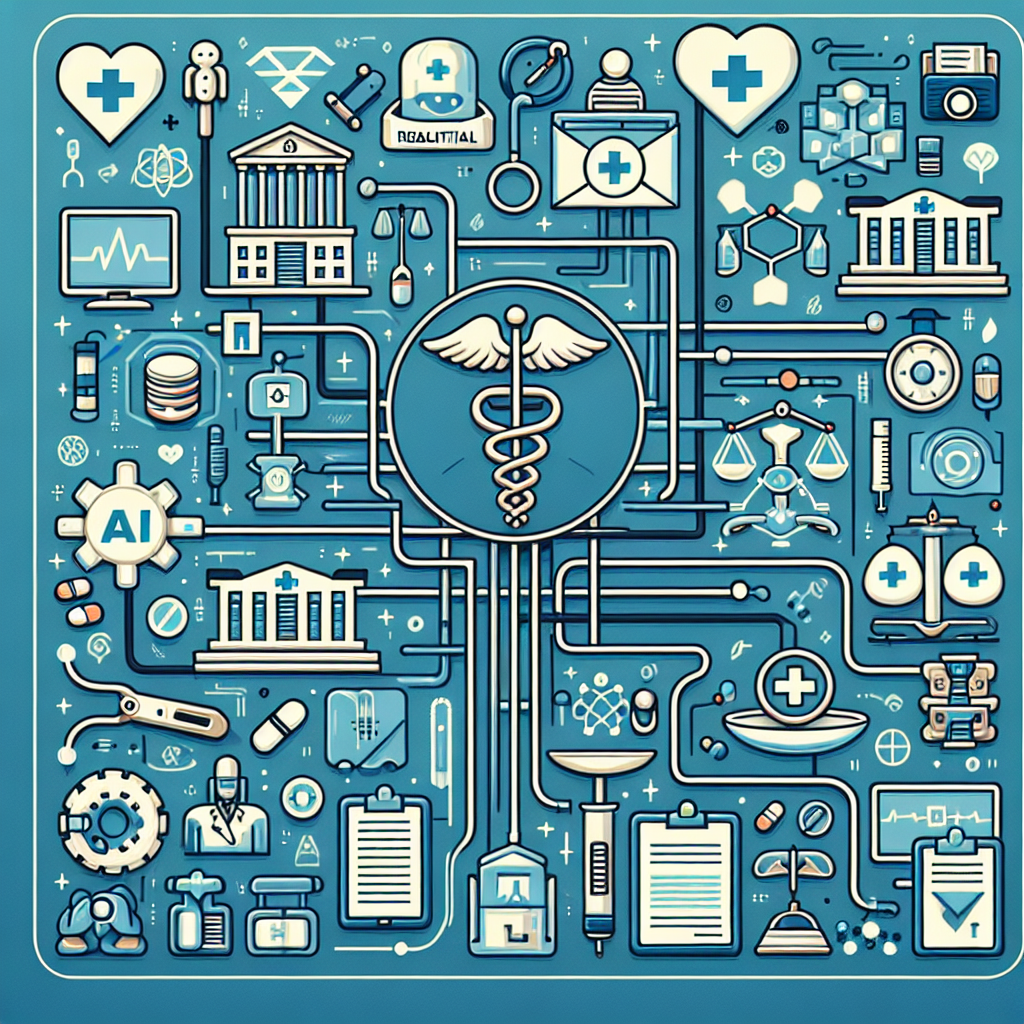AI Automation: A Solution for Compliance and Regulatory Reporting in Healthcare
In the healthcare industry, compliance and regulatory reporting play a crucial role in ensuring that healthcare providers adhere to the laws and regulations set forth by governing bodies such as the Health Insurance Portability and Accountability Act (HIPAA) and the Centers for Medicare and Medicaid Services (CMS). Compliance and regulatory reporting are essential for protecting patient data, ensuring quality care, and maintaining financial stability within healthcare organizations.
However, compliance and regulatory reporting can be a time-consuming and labor-intensive process for healthcare providers. The sheer volume of regulations and reporting requirements can be overwhelming, leading to errors, delays, and potential compliance violations. This is where AI automation comes in as a game-changer for healthcare organizations looking to streamline their compliance and regulatory reporting processes.
AI automation refers to the use of artificial intelligence technologies such as machine learning, natural language processing, and robotic process automation to automate repetitive tasks and processes. In the context of compliance and regulatory reporting in healthcare, AI automation can help healthcare organizations streamline data collection, analysis, and reporting, reduce manual errors, and ensure compliance with regulatory requirements.
One of the key benefits of AI automation in compliance and regulatory reporting is its ability to process vast amounts of data quickly and accurately. AI algorithms can analyze structured and unstructured data from multiple sources, such as electronic health records, billing systems, and regulatory documents, to identify patterns, trends, and anomalies that may indicate non-compliance or reporting errors.
AI automation can also help healthcare organizations stay up-to-date with changing regulations and reporting requirements. AI algorithms can continuously monitor regulatory updates, analyze their impact on existing processes, and recommend changes to ensure compliance. This can help healthcare organizations avoid costly penalties and reputational damage associated with non-compliance.
Furthermore, AI automation can improve the efficiency and accuracy of compliance audits and investigations. AI algorithms can analyze historical data, identify potential compliance risks, and generate reports that can be used to demonstrate compliance to auditors and regulators. This can help healthcare organizations reduce the time and resources required to respond to audit requests and improve their overall compliance posture.
In addition to compliance and regulatory reporting, AI automation can also help healthcare organizations improve operational efficiency, enhance patient care, and reduce costs. By automating routine tasks such as data entry, data validation, and data reconciliation, healthcare providers can free up resources to focus on more value-added activities such as patient care and strategic decision-making.
FAQs:
Q: How can AI automation help healthcare organizations streamline compliance and regulatory reporting processes?
A: AI automation can help healthcare organizations streamline compliance and regulatory reporting processes by automating data collection, analysis, and reporting tasks. AI algorithms can process vast amounts of data quickly and accurately, identify patterns, trends, and anomalies that may indicate non-compliance or reporting errors, and generate reports that can be used to demonstrate compliance to auditors and regulators.
Q: How can AI automation help healthcare organizations stay up-to-date with changing regulations and reporting requirements?
A: AI automation can help healthcare organizations stay up-to-date with changing regulations and reporting requirements by continuously monitoring regulatory updates, analyzing their impact on existing processes, and recommending changes to ensure compliance. This can help healthcare organizations avoid costly penalties and reputational damage associated with non-compliance.
Q: How can AI automation improve the efficiency and accuracy of compliance audits and investigations?
A: AI automation can improve the efficiency and accuracy of compliance audits and investigations by analyzing historical data, identifying potential compliance risks, and generating reports that can be used to demonstrate compliance to auditors and regulators. This can help healthcare organizations reduce the time and resources required to respond to audit requests and improve their overall compliance posture.
Q: What are some of the other benefits of AI automation in healthcare?
A: In addition to compliance and regulatory reporting, AI automation can also help healthcare organizations improve operational efficiency, enhance patient care, and reduce costs. By automating routine tasks such as data entry, data validation, and data reconciliation, healthcare providers can free up resources to focus on more value-added activities such as patient care and strategic decision-making.
In conclusion, AI automation is a powerful tool that can help healthcare organizations streamline compliance and regulatory reporting processes, stay up-to-date with changing regulations and reporting requirements, improve the efficiency and accuracy of compliance audits and investigations, and enhance operational efficiency, patient care, and cost-effectiveness. By leveraging AI automation, healthcare providers can ensure compliance with regulatory requirements, protect patient data, and maintain financial stability in an increasingly complex and demanding regulatory environment.

